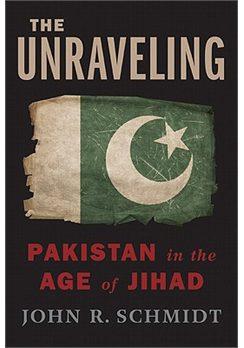 In mid-September, bomb blasts and gunfire hit the U.S. Embassy and the NATO headquarters in Kabul, killing seven people. According to subsequent intelligence reports, the perpetrators were from the Haqqani network, which has been funded and supported by the government’s Inter-Services Intelligence (ISI). The Pakistani government denied the U.S. accusations, but the tough reactions of both sides reveal the mutual mistrust and widening cleavage between the two counter-terrorism allies.
In mid-September, bomb blasts and gunfire hit the U.S. Embassy and the NATO headquarters in Kabul, killing seven people. According to subsequent intelligence reports, the perpetrators were from the Haqqani network, which has been funded and supported by the government’s Inter-Services Intelligence (ISI). The Pakistani government denied the U.S. accusations, but the tough reactions of both sides reveal the mutual mistrust and widening cleavage between the two counter-terrorism allies.
It seems to be a policy contradiction for Pakistan to support U.S. military actions in Afghanistan while maintaining its connection with radical Islamic groups in the region. Yet according to John R. Schmidt, a senior U.S. diplomat and analyst of Pakistani politics, Pakistan’s dual policy is understandable and the United States must face up to the problem. In his latest book, The Unraveling: Pakistan in the Age of Jihad, Schmidt traces the history of Pakistani politicians who have advanced foreign policy goals by using Islamic radicals, especially in Kashmir and in Afghanistan’s civil war. He tells readers of how Pakistan has become a center of regional radical Islamism not only because of its selfish leadership and poor judgment, but also because of the mistakes and miscalculations of India and the United States. This is, he cautions, “a story without heroes.”
Those who study Pakistan must have a comprehensive understanding of the country’s feudal class structure, military affairs, and Islamism. The first three chapters of the book reveal the country’s unique social patronage network and traditions, exposing the complicated relationships among these three primary actors. Many civilian politicians have been locked in “a perpetual struggle” for access to national resources to serve feudal landlords. The army, on the other hand, has a more national and public interest perspective, though it lacks democratic legitimacy and the trust of the public. Although once a low-profile actor in the political arena, Islamism, especially the more fundamentalist Deobandi Sunni sect popular among the Pashtuns of the North Western Frontier Province and lower-class Punjabis, has become a fertile soil for radical jihadists.
Schmidt squarely blames Pakistani politicians for preparing the ground for the current ascendancy of radical Islamism, from Zulfiqar Ali Bhutto sending irregular forces to help the Kashmiri Muslim uprising in the early 1960s and Zia ul-Haq’s support of anti-Soviet jihad in Afghanistan to the deliberate institutionalization of pro-Pakistan and Pashtun majority jihadist groups — such as the Jaish-e-Mohammed (JeM), Harkat-ul-Jihad-al-Islami (HUJI), and later the Lashkar-e-Taiba (LeT) — to serve Pakistani interests in Kashimir and in Afghanistan since the late 1980s. Such a foreign policy reached its apex when the Taliban took over Afghanistan in the mid-1990s, which created an illusion that the strategy was effective.
President George W. Bush’s “you’re either with us or against us” stance gave Islamabad no choice but to stand on the U.S. side, which put then-President Pervez Musharraf and his successors in a difficult situation. Given the bitter memories of the territorial dispute with Afghanistan before the 1980s and the pro-India tendencies of a politician like Hamid Karzai in office in Kabul, Pakistan hopes that the Taliban can keep its neighbor preoccupied and, therefore, less of a threat to Pakistan.
As such, Pakistan’s cooperation with the United States has always been limited and intermittent. The government even reached several peace agreements with radical Islamic groups and local extremists in the tribal areas while conducting military operations against them. After 2007, when Islamabad realized that jihadist groups, which provided refuge for former al-Qaeda and Taliban members fleeing from Afghanistan, became a primary threat to its own stability, it found itself outmaneuvered in the ensuing garrison warfare because of inadequate military capacities and resources. Schmidt understands these difficulties and accepts some of Pakistan’s explanations. But he insists that the Pakistani leadership is largely responsible for this dire situation.
The situation in Pakistan also poses a policy dilemma for the United States. On one hand, the White House has failed to press Pakistan to do more to either eradicate its domestic radical Islamism or to rein in nuclear proliferation. On the other, as indicated in Schmidt’s conversations with Pakistani army officers, governmental officials, and Islamic sect leaders, there is a chronic distrust of Americans among Pakistanis. If a leader pushes too hard on the issue or gets too close to the United States, it fuels domestic anti-Americanism that undercuts his governance, as happened in the case of Musharraf. It also helps expand the influence of radical Islamism into urban areas, which encourages more U.S. drone attacks that kill innocent Pakistanis, thereby creating a vicious circle that impedes the bilateral relationship.
At a broader level, Schmidt believes that both American and Indian policies exacerbate Pakistan’s sense of insecurity and contribute to its reluctance to fight jihadist groups. Although the United States played an important role in the re-launch of peace negotiations, its commitment to Pakistan’s security is limited to its multi-billion dollar assistance. The United States, after all, is rapidly expanding its military and strategic relationship with India, in part to contain China. India, meanwhile, shows little willingness to withdraw militarily from Kashmir and provide autonomy status to the region under a Pakistan-India-Kashmir trilateral mechanism.
Schmidt’s book is rather gloomy in its forecast of Pakistan’s future. Despite his pessimism and the bias provided by his years as a U.S. diplomat, Schmidt does a credible job of analyzing the internal dynamics within Pakistan and its implications for U.S. foreign policy.